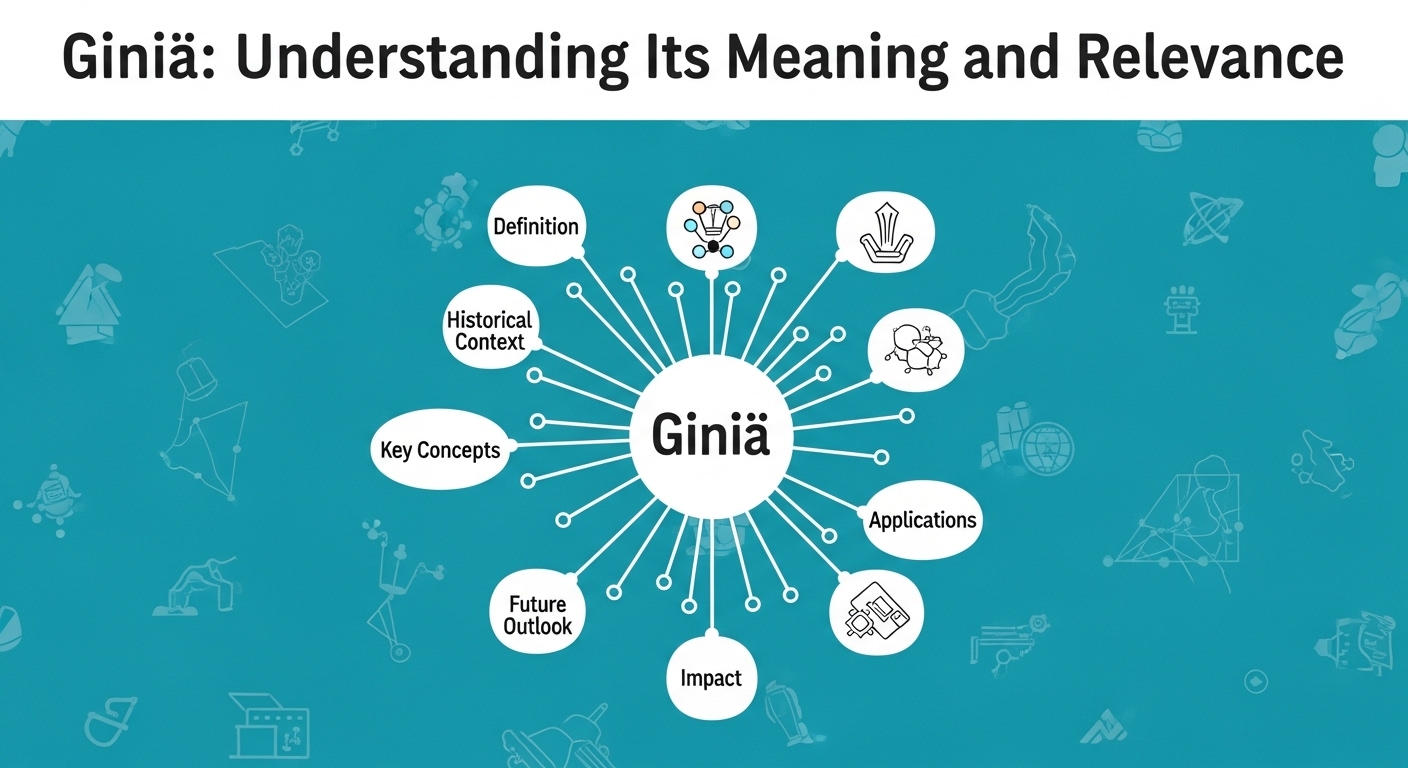HOME
Living Alone but Not Lonely: The Hidden Challenges of Solo Dwelling

Living alone has its perks—privacy, independence, and the freedom to decorate your space just the way you like it. For many, it’s a dream come true. However, the reality of solo living isn’t always as rosy as it seems. While there are undeniable benefits, there are also significant drawbacks that can impact your emotional well-being, financial stability, and even your safety.
Whether you’re considering moving into your place for the first time or have been living solo for years, this post will provide valuable insights and practical tips to make your solo dwelling experience more enjoyable and less isolating.
The Isolation Factor
Emotional Effects of Long-term Isolation
While solitude can be a delightful respite from the hustle and bustle of daily life, prolonged isolation can lead to feelings of loneliness and depression. The absence of regular human interaction can make you feel disconnected from the world around you, affecting your mental health and overall well-being.
According to a recent study, people who live alone are more likely to experience symptoms of depression and anxiety. The lack of social support can exacerbate these feelings, making it difficult to cope with everyday stressors.
How to Combat Isolation
Combatting isolation requires proactive steps to stay connected with others. Here are some strategies:
- Join Clubs or Groups: Whether it’s a book club, a sports team, or a hobby group, joining a community can provide regular social interaction.
- Stay Connected Digitally: Use technology to keep in touch with friends and family through video calls, social media, and messaging apps.
- Volunteer: Volunteering not only helps others but also provides a sense of purpose and community.
Building Emotional Resilience
Building emotional resilience is crucial for solo dwellers. Engage in activities that bring you joy and relaxation, such as reading, gardening, or cooking. Practicing mindfulness and meditation can also help you manage stress and stay emotionally balanced.
Financial Strains
Living alone means shouldering all financial responsibilities by yourself, which can be daunting. Rent, utilities, groceries, and other expenses quickly add up, leaving little room for savings or leisure activities. Additionally, living alone can also make it challenging to find affordable housing.
Budgeting Tips for Solo Dwellers
- Create a Budget: Track your income and expenses to understand where your money is going. This will help you identify areas where you can cut costs.
- Emergency Fund: Having an emergency fund can provide a financial cushion during unexpected situations, such as medical emergencies or job loss.
- Live Within Your Means: Avoid unnecessary debt by prioritizing needs over wants and making mindful spending decisions.
Seeking Financial Assistance
Don’t hesitate to seek financial advice or assistance if needed. Many communities offer resources and programs to help individuals manage their finances effectively.
Home Safety
Living alone means you are solely responsible for your safety and security. This can be particularly concerning for those who are not used to handling security matters on their own.
Statistics show that homes occupied by solo dwellers are more likely to be targeted by burglars. Ensuring your home is secure is crucial for peace of mind and personal safety.
Practical Measures for Protecting Oneself
- Install Security Systems: Investing in a good security system with cameras and alarms can deter potential intruders.
- Keep Doors and Windows Locked: Always lock your doors and windows, even when you’re at home. Consider adding deadbolts and security bars for extra protection.
- Be Cautious with Personal Information: Avoid sharing too much personal information online or with strangers. Be mindful of who you allow into your home.
Emergency Preparedness
Being prepared for emergencies is essential. Keep a list of emergency contacts, including a trusted neighbor or friend, and have an emergency kit with essentials like first-aid supplies, flashlights, and batteries. Even having the contact number of a plumber from West Jordan can come in handy during unexpected situations.
Creating Community
Living alone doesn’t mean you have to be alone. Building a support network is vital for emotional and practical support. Having a few trusted friends or neighbors you can rely on can make a significant difference in your solo living experience.
Strategies for Building and Maintaining Relationships
- Be Neighborly: Introduce yourself to your neighbors and build a rapport. They can be valuable allies and provide a sense of community.
- Attend Local Events: Participate in local events, such as farmers’ markets, festivals, and community gatherings, to meet new people and foster connections.
- Regular Check-ins: Make it a habit to check in with friends and family regularly. A simple call or message can go a long way in maintaining relationships.
Joining Online Communities
Online communities can also provide a sense of belonging. Join forums, social media groups, or online clubs that align with your interests and passions.
Conclusion
Living alone offers unparalleled freedom and independence, but it comes with its own set of challenges. From combating isolation and managing financial strains to ensuring home safety and creating a supportive community, solo dwelling requires a proactive approach to maintain a balanced and fulfilling life.
Remember, you’re not alone in this journey. By taking the necessary steps to address these challenges, you can make the most of your solo living experience and enjoy the benefits it brings.
If you need further assistance or resources, don’t hesitate to reach out to professionals or join community groups that can provide the support you need.
HOME
Oneworldcolumns.org: A Platform for Diverse Perspectives

In an increasingly interconnected world, the need for diverse viewpoints and informed discussions has never been more critical. Oneworldcolumns.org serves as a dynamic platform that offers a range of articles, insights, and opinions on various global issues. This article explores what Oneworldcolumns.org has to offer, its unique features, and why it is an essential resource for readers seeking a broader understanding of the world.
What is Oneworldcolumns.org?
Oneworldcolumns.org is an online publication dedicated to providing readers with a collection of articles that cover a wide array of topics, including politics, social issues, culture, and environmental concerns. The platform aims to foster dialogue and understanding by presenting diverse perspectives from writers around the globe.
The Mission of Oneworldcolumns.org
The mission of Oneworldcolumns.org is to create a space where voices from different backgrounds can come together to share their thoughts and experiences. By promoting dialogue and understanding, Oneworldcolumns.org seeks to bridge cultural divides and encourage readers to consider multiple viewpoints on pressing global issues.
Key Features of Oneworldcolumns.org
Diverse Content Categories
One of the notable aspects of Oneworldcolumns.org is its diverse range of content categories. The platform covers various themes, including:
- Politics: Articles discussing current events, political theories, and policy analyses.
- Social Issues: Insights into social justice, equality, and community development.
- Culture: Explorations of art, literature, and cultural practices from around the world.
- Environment: Discussions on climate change, sustainability, and ecological initiatives.
This wide array of topics ensures that readers can find content that resonates with their interests and concerns.
Contributions from Global Voices
Oneworldcolumns.org prides itself on featuring contributions from writers across the globe. This commitment to inclusivity allows for a rich tapestry of opinions and experiences, providing readers with a well-rounded understanding of various topics. Contributors include activists, academics, journalists, and everyday individuals who share their unique perspectives on the issues that matter most.
Engaging Multimedia Content
In addition to written articles, Oneworldcolumns.org incorporates multimedia elements such as videos, podcasts, and infographics. This diverse format enhances the reading experience and allows for a more engaging exploration of complex topics. Visual content can help simplify difficult concepts and make information more accessible to a broader audience.
Why Choose Oneworldcolumns.org?
Reliable and Thought-Provoking Information
In a time when misinformation is rampant, finding reliable sources of information is crucial. The platform encourages critical thinking and aims to provide readers with the tools they need to engage in informed discussions.
A Community of Engaged Readers
The platform encourages comments and discussions on articles, allowing individuals to share their thoughts and engage with others. This interactive element enhances the overall experience and promotes a culture of dialogue and understanding.
Regularly Updated Content
To remain relevant in a fast-paced world, Oneworldcolumns.org is committed to regularly updating its content. Readers can expect fresh articles that address current events and emerging issues, ensuring they stay informed about the latest developments in various fields.
How to Make the Most of Oneworldcolumns.org
Explore Different Perspectives
To fully benefit from Oneworldcolumns.org, take the time to explore articles from various categories. Engaging with diverse viewpoints can broaden your understanding of complex issues and challenge your preconceptions. This exploration can lead to more informed opinions and a deeper appreciation for global diversity.
Participate in Discussions
Engage with other readers by participating in discussions in the comments section. Sharing your thoughts and responding to others can enrich your experience on Oneworldcolumns.org. This interaction not only enhances your understanding but also fosters connections with like-minded individuals.
Share Valuable Content
If you find articles that resonate with you, consider sharing them on social media or with friends and family. Spreading valuable content helps raise awareness of important issues and encourages others to engage in meaningful discussions.
Conclusion
Oneworldcolumns.org stands out as a vital platform for those seeking diverse perspectives on global issues. With its wide range of content categories, contributions from global voices, and commitment to fostering dialogue, it provides readers with a unique opportunity to engage with the world around them.
HOME
EverythingNew.net: Your Hub for Discovery and Innovation

In today’s rapidly evolving world, staying informed and embracing the latest advancements is crucial. Whether you’re seeking the newest gadgets, groundbreaking research, or emerging trends, having a reliable source for information is invaluable. That’s where everythingnew.net comes in. This comprehensive platform aims to be your go-to destination for exploring a diverse range of innovations, providing insights, resources, and a community for those passionate about staying ahead of the curve.
What is EverythingNew.net
Everythingnew.net isn’t just a website; it’s a curated ecosystem designed to foster curiosity and facilitate the exploration of new ideas. It offers a diverse range of content, including:
- News and Articles: Covering a broad spectrum of topics, from technological breakthroughs and scientific discoveries to cultural shifts and societal changes. These articles are meticulously researched and written by experts, providing in-depth analysis and informed perspectives.
- Product Reviews: A dedicated section evaluating the latest products and gadgets. These reviews are unbiased and comprehensive, offering valuable insights into performance, features, and overall value, helping you make informed purchasing decisions.
- Trend Spotting: Identifying and analyzing emerging trends across various industries. This section helps you anticipate future developments and understand their potential impact on your personal and professional life.
- Resource Directory: A curated collection of links and resources related to innovation, technology, and learning. This directory provides access to a wealth of information, including research papers, educational materials, and industry reports.
- Community Forum: A platform for users to connect, share ideas, and discuss the latest innovations. This forum allows you to engage with like-minded individuals, ask questions, and contribute to the ongoing conversation about the future.
Navigating the Ever-Changing Landscape
The world is constantly evolving, with new technologies, ideas, and trends emerging at an unprecedented pace. Keeping up with these changes can be challenging, but everythingnew.net aims to simplify the process by providing a centralized hub for information and discovery. The platform focuses on:
- Curated Content: Sifting through the vast amount of information available online to provide you with the most relevant and reliable content.
- Expert Analysis: Offering insightful analysis from industry experts and thought leaders, helping you understand the implications of new developments.
- Accessible Information: Presenting information in a clear, concise, and easy-to-understand format, making complex topics accessible to a wider audience.
- Diverse Perspectives: Presenting multiple perspectives on emerging issues, encouraging critical thinking and informed decision-making.
Exploring Key Areas on EverythingNew.net
Everythingnew.net covers a wide range of subject areas, ensuring that there’s something for everyone. Here’s a glimpse into some of the key topics explored on the platform:
- Technology and Innovation: Covering advancements in fields like artificial intelligence, machine learning, blockchain, virtual reality, augmented reality, robotics, and more.
- Science and Research: Exploring groundbreaking discoveries in areas such as medicine, biology, physics, chemistry, and environmental science.
- Business and Entrepreneurship: Examining emerging business models, innovative marketing strategies, and the latest trends in the startup ecosystem.
- Arts and Culture: Highlighting new trends in art, music, film, literature, and other cultural expressions.
- Sustainability and Environment: Addressing critical environmental challenges and exploring innovative solutions for a more sustainable future.
- Health and Wellness: Providing information and resources on the latest health trends, wellness practices, and medical breakthroughs.
Why Choose EverythingNew.net as Your Information Source?
In a world saturated with information, finding a reliable and trustworthy source can be a daunting task. Everythingnew.net stands out from the crowd for several reasons:
- Credibility: The platform is committed to providing accurate and well-researched information.
- Objectivity: Articles and reviews are presented in an unbiased manner, allowing you to form your own conclusions.
- Comprehensive Coverage: Everythingnew.net covers a wide range of topics, ensuring that you stay informed about the latest developments across various fields.
- User-Friendly Interface: The platform is designed to be easy to navigate, allowing you to quickly find the information you need.
- Community Engagement: The community forum provides a platform for you to connect with other users, share ideas, and learn from each other.
Leveraging EverythingNew.net for Personal and Professional Growth
Whether you’re a student, a professional, or simply a curious individual, everythingnew.net can be a valuable resource for personal and professional growth. By staying informed about the latest trends and advancements, you can:
- Expand your knowledge base: Gain a deeper understanding of the world around you.
- Enhance your skills: Identify opportunities to develop new skills and improve your existing ones.
- Make informed decisions: Make better decisions in your personal and professional life based on accurate and up-to-date information.
- Stay ahead of the curve: Anticipate future developments and prepare for the challenges and opportunities that lie ahead.
- Network with like-minded individuals: Connect with other people who share your interests and passions.
How to Make the Most of EverythingNew.net
To maximize the benefits of everythingnew.net, consider the following tips:
- Explore different sections: Take some time to browse through the various sections of the platform and discover new areas of interest.
- Subscribe to the newsletter: Stay up-to-date on the latest articles, reviews, and trends by subscribing to the everythingnew.net newsletter.
- Participate in the community forum: Engage with other users, share your ideas, and ask questions.
- Bookmark your favorite articles: Save articles that you find particularly interesting or useful for future reference.
- Share content with your network: Share articles and reviews with your friends, family, and colleagues to spark discussions and spread awareness.
The Future of EverythingNew.net
Everythingnew.net is constantly evolving to meet the changing needs of its users. The platform plans to expand its coverage, introduce new features, and further enhance the user experience. Some of the future plans include:
- Expanding the team of contributors: Adding more expert voices to provide a wider range of perspectives.
- Introducing new multimedia formats: Incorporating videos, podcasts, and infographics to enhance the learning experience.
- Developing interactive tools and resources: Creating tools and resources to help users apply their knowledge and skills.
- Building partnerships with industry leaders: Collaborating with leading organizations to provide access to exclusive content and opportunities.
Conclusion: Embrace the New with EverythingNew.net
In conclusion, everythingnew.net is a valuable resource for anyone seeking to stay informed about the latest innovations and trends. With its comprehensive coverage, expert analysis, and user-friendly interface, the platform provides a gateway to the future. By exploring everythingnew.net, you can expand your knowledge, enhance your skills, and stay ahead of the curve in today’s rapidly changing world. So, dive in, explore, and embrace the new! You may just discover the next big thing.
HOME
Giniä: Understanding Its Meaning and Relevance

Introduction
The word giniä is not widely recognized in mainstream English, but it resembles terms that may appear in linguistic, cultural, or conceptual contexts. While it is not a standard term in dictionaries or scientific literature, its usage or appearance could relate to specific brands, personal names, cultural references, or even creative designations. This article explores possible meanings and interpretations of giniä, its linguistic features, and potential relevance in modern discourse.
The Linguistic Structure of Giniä
Analyzing the Word Form
At a glance, giniä appears to be a word constructed with a base (gini) and a diacritic mark (ä). The umlaut (¨) over the letter “a” suggests that the term may be influenced by languages such as German, Finnish, Estonian, or Swedish, where vowels with diacritical marks carry specific phonetic meanings.
In those languages:
- Words ending in -ia or -iä can indicate feminine forms or pluralities
Thus, giniä may be phonetically pronounced as “gih-nee-ah” or “gih-nee-eh”, depending on the language base.
Possible Language Origins
The word could have origins or usages in:
- Finnish, where “-ä” endings are common in partitive cases
- German, where “ä” changes pronunciation and meaning
- Constructed or brand names, designed to sound elegant or international
The creative use of the umlaut also makes it popular in branding or artistic contexts to create a unique and stylized term.
Possible Interpretations of Giniä
Given the versatility of made-up or regionally adapted words, giniä might be interpreted in several plausible ways.
1. A Brand or Product Name
Many brands today create names that are memorable, global, and culturally neutral, using stylized characters to stand out. Giniä could be a brand name for:
- A cosmetic or skincare product emphasizing natural or luxurious qualities
- A fashion label aiming for a European aesthetic
- A digital app or startup in wellness, AI, or design
In this case, giniä serves as a trademark-friendly term, possibly linked to values like clarity, sophistication, or innovation.
2. A Personal or Fictional Name
The name Giniä may be used as a fictional character in literature, gaming, or storytelling. It evokes a futuristic or mythological tone, making it a strong candidate for:
- Science fiction or fantasy characters
- Virtual assistants or AI personas
- Protagonists in indie games or novels
It may also function as a given name in fictional or multicultural contexts.
3. Cultural or Artistic Symbol
If giniä is used in an artistic context, it might represent a concept or idea. Artists, musicians, and designers sometimes invent names to signify a project or movement. For instance, giniä could be:
- A term representing feminine energy or intuition
- A symbol in abstract visual art
This type of name is designed to evoke emotion or provoke curiosity.
How Giniä Could Be Used in Business or Design
Branding Potential
One of the key attractions of the term giniä is its international appeal and visual uniqueness. The use of the diacritic makes it stand out in digital and printed formats. It’s short, easy to remember, and not tied to any specific known word, which makes it versatile in:
- Global brand naming
- Luxury product lines
- Minimalist or Nordic-inspired visual identities
Domain and Trademark Availability
Because it is an uncommon term, giniä may still be available as a domain name or trademark, making it ideal for startups looking for a unique brand presence online. Names like giniä.com or giniä.app would be desirable for companies focused on elegance, clarity, or simplicity.
Logo and Visual Representation
The shape and balance of the word “giniä” allow for strong visual design. Brands using it could emphasize clean lines, modern fonts, and stylish colors, consistent with Scandinavian, German, or Japanese minimalism.
Giniä in the Context of Language Creation
Some modern authors and game developers engage in conlanging—the creation of fictional languages. Words like giniä may originate in:
- Constructed language dictionaries
- Role-playing worlds
- Digital environments or metaverses
These invented words follow consistent grammar rules and often gain popularity through cultural adoption or viral storytelling.
Why Words Like Giniä Matter
Terms like giniä, while not yet defined by global consensus, reflect key trends in:
- Creative branding
- Multicultural fusion
- Phonetic aesthetics
- Digital identity
Understanding how and why such words emerge helps linguists, marketers, and content creators stay ahead of language evolution and cultural branding.
Conclusion
Though giniä does not yet have a universally accepted definition, it holds promise as a creative, flexible, and globally appealing term. Whether it becomes a brand name, a fictional character, or a linguistic innovation, giniä demonstrates the power of constructed vocabulary in a connected, creative world.
-

 HEALTH2 years ago
HEALTH2 years agoIntegrating Semaglutide into Your Weight Loss Plan: A Practical Guide
-

 HOME IMPROVEMENT2 years ago
HOME IMPROVEMENT2 years agoHow to Choose the Perfect Neutral Area Rug for Every Room
-

 FASHION2 years ago
FASHION2 years ago7 Celebrity-Inspired Elegant Summer Dresses For 2024
-

 LAW2 years ago
LAW2 years agoTeenage Drivers and Car Accidents in California: Risks and Parental Liability
-

 CONSTRUCTION2 years ago
CONSTRUCTION2 years agoConstruction Site Safety Regulations in New York and Your Rights as a Worker
-

 LAW2 years ago
LAW2 years agoPost-Divorce Considerations in California: Modifications and Long-Term Planning
-

 HOME2 years ago
HOME2 years agoSandra Orlow: The Teen Model Who Captivated the Internet
-

 FINANCE2 years ago
FINANCE2 years agoDigital Asset Management in Florida Estate Planning
